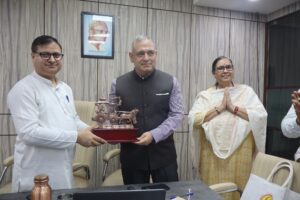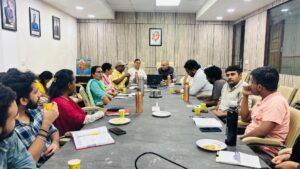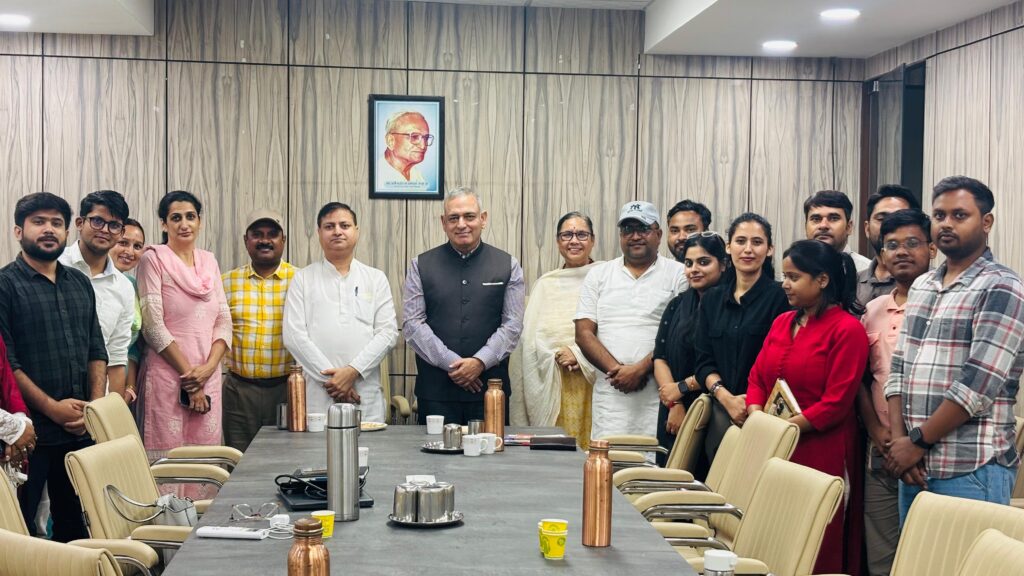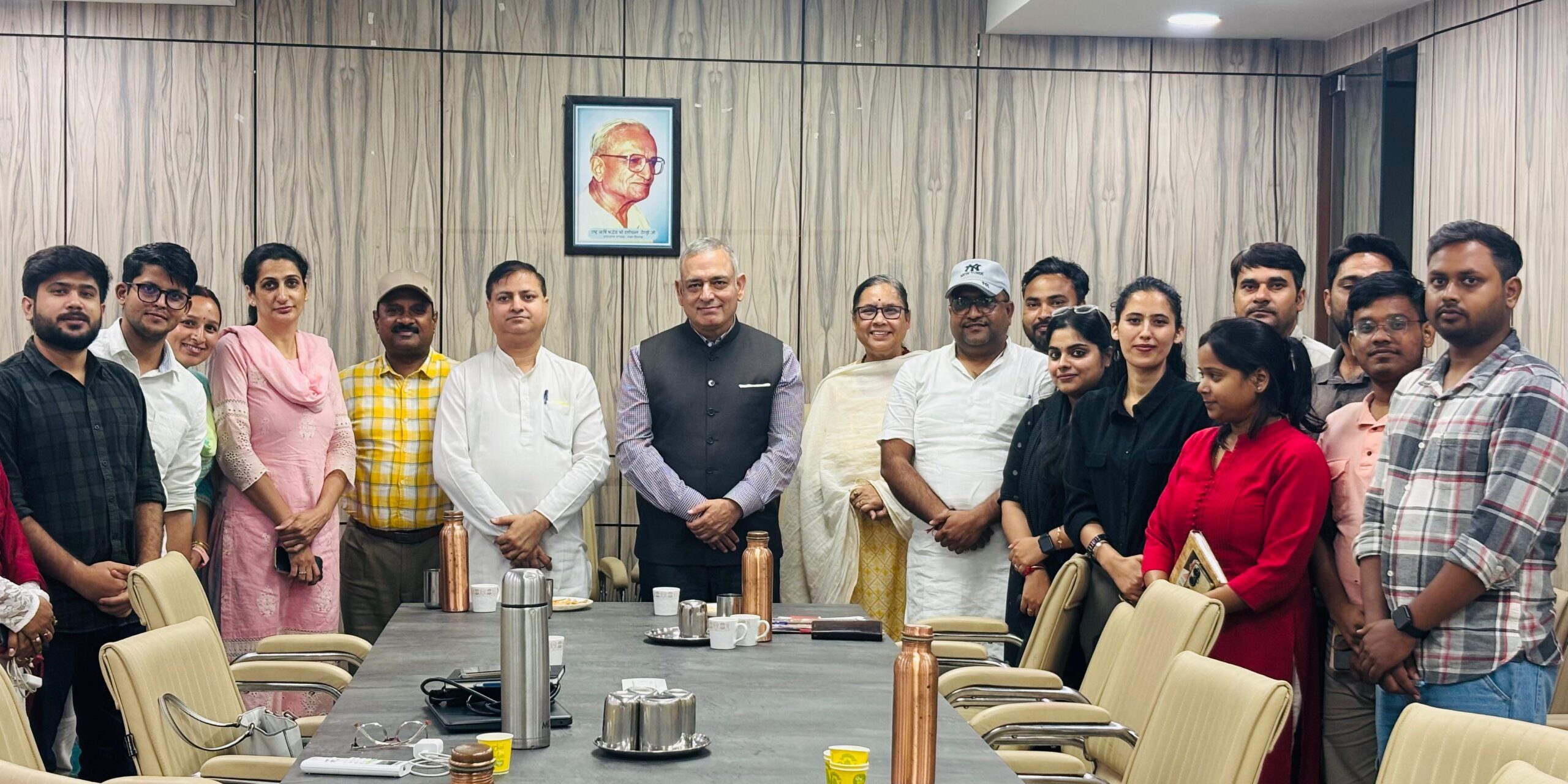Seminar Report: Beyond the Rivers—Time to Rethink the Indus Waters Treaty
Date: 10th July 2025
Organised by: Swadeshi Shodh Sansthan

Keynote Speaker: Shri Sanjay Kundu
(Former DGP, Himachal Pradesh | Chairman, Brahmaputra Board | DG, NWDA)
The Swadeshi Shodh Sansthan successfully organised a high-level seminar titled “Beyond the Rivers: Time to Rethink the Indus Waters Treaty (IWT)”, focusing on Bharat’s strategic, hydrological, and national interests in the evolving water-sharing discourse.
The keynote address was delivered by Shri Sanjay Kundu, IPS, Former DGP of Himachal Pradesh, Chairman of the Brahmaputra Board, and Director General of the National Water Development Agency (NWDA).
In a time of mounting water stress, demographic pressure, and emerging geo-strategic realities, the Swadeshi Shodh Sansthan took a decisive step forward by organising a seminar titled *“Beyond the Rivers: Time to Rethink the Indus Waters Treaty (IWT) on 10th July 2025. The event aimed to spark a national debate around the re-evaluation of the IWT, a treaty signed in 1960 under the aegis of the World Bank between Bharat and Pakistan.
1. Strategic Imbalance in the IWT
India receives only 16% of the Indus system’s waters, despite being the upper riparian and origin point of the majority of rivers.
Pakistan benefits from 84% of the water flowing from India, a situation increasingly seen as diplomatically outdated and ecologically unjust.
2. Legal & Diplomatic Levers for Revision
The speaker underscored that Article VII (Future Cooperation) and the Preamble of the IWT provide sufficient grounds for re-negotiation.
The treaty is not immutable as claimed by certain international and domestic vested interests.
3. Impact on Jammu & Kashmir, Ladakh, and Punjab
The Western Rivers (Indus, Jhelum, Chenab) flow through Indian territories like Ladakh and Jammu & Kashmir, yet local communities have limited rights and access to their water resources under the IWT framework.
Hydropower & Storage Potential Throttled
India’s ability to develop hydropower and storage infrastructure is curtailed under restrictive annexures of the IWT.
Projects on Western Rivers have been likened to computer RAM, temporary, without long-term water storage, whereas the country needs “hard-disk” level retention.
4. Learning from Global Examples
China’s South-North Water Transfer Project was presented as a case study transferring 36 MAF across 2,900 km to highlight how national interests can drive ambitious water policies.
5. A Swadeshi Roadmap Forward
Short-term, medium-term, and long-term policy options were presented:
Short-Term: Full utilisation of Eastern Rivers; suspension of data sharing with Pakistan.
Medium-Term: Dam desiltation, modernisation of canal systems, and push-back on Pakistan’s vetoes.
Long-Term: Inter-basin water transfers through canal networks to support water-deficient states like Rajasthan, Delhi, Punjab, and UP.
The seminar concluded with a powerful message: The Indus Waters Treaty is not a divine commandment; it’s a dated document. India must initiate a new discourse, assert its upper riparian rights, and address internal water needs through a Swadeshi vision of hydro-sovereignty.
As we move towards Vision 2047, realigning our national water policy and reclaiming our rightful share is not just a strategic necessity; it is a civilizational imperative.







